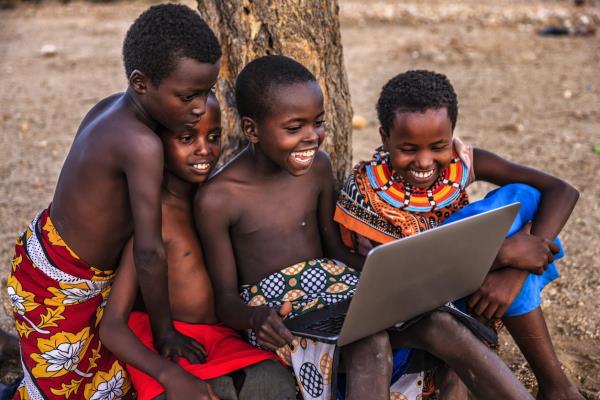14 April 2018

Quika believes that the opportunities the internet provides shouldn’t be limited by geography, culture, wealth or infrastructure.
A new company has been set-up to launch what’s promise to be the world’s first entirely free high-speed satellite internet for consumers in developing countries.
London-based Quika was founded by Alan Afrasiab, the CEO and president of global satellite networks and services provider, Talia Group.
Speaking during the launch of Quika in January, Afrasiab said: “We believe that left unbalanced, entire communities and regions will be abandoned by technological and economic progress. Quika will help bridge this digital and economic divide.
“The main reasons for people not using the internet are inequalities in relation to income and education, as well as the lack of infrastructure, relevant online content and services, plus relatively high costs of access and usage.”
Quika’s free service will be partially funded by advertising and through the subsidisation of the paid version which will be available on a pay monthly basis or via pre-paid plans. Prices have yet to be announced.
Paid services will include a variety of bandwidths designed for SMEs and local ISPs, and offer download speeds of 5-50Mbps and upload speeds of 1-3Mbps depending on the plan chosen.
The free version will have fixed bandwidth offering download/upload speeds of 3Mbps/1Mbps.
Quika will use high throughput Ka-band satellites. It said that while data speeds will be fast, internet services provided by geostationary satellites mean an average latency of 638ms.
This will make Quika unsuitable for applications such as online gaming or screen sharing.
However in the future, the firm aims to utilise low-Earth orbit satellites that promise to reduce latency to under 100ms.
In the meantime, Quika has partnered with Isotropic Systems to develop a self-installing terminal to help bring broadband to consumers at no cost.
With offices in the UK and USA, Isotropic Systems is developing a terminal to support the satellite industry to ‘reach beyond’ traditional markets. It claims the fully integrated high throughput terminal will be the first to offer multi-service, high-bandwidth and low power.
The two companies said they will jointly develop an “out-of-the-box consumer web experience” that eliminates the need for skilled installation, and allows internet usage to be fully subsidised by advertising.
Isotropic said its optical technology will enable terminals that meet or exceed traditional VSATs at one-tenth the current cost.
It claims that the technology mitigates several key engineering challenges to deliver “seamless auto tracking, unlimited instantaneous bandwidth through true time delay, and a 90 per cent reduction in power consumption over conventional design”.
According to Isotropic, its technology automatically tunes the beam-pointing to maintain the precise accuracy over time that is uniquely needed for Ka-band systems to optimise the efficiency of the links in the service provider's network.
In a separate deal, Avanti Communications is also working with Isotropic to develop a self-installing terminal to expand its markets in Africa, the Middle East and Europe. A working prototype is expected in early 2019 and full scale production by mid 2020.
Quika will initially launch its internet services in Afghanistan and Iraq at the end of Q318 before launching in 27 countries in Africa at the end of the year. They include: Algeria, Benin, Cameroon, Congo Republic, Côte d’Ivoire, DRC, Egypt, Ghana, Libya, Nigeria, Rwanda, Senegal, South Sudan, Togo and Tunisia.
The company points out that its ultimate vision is to offer free broadband services globally.







